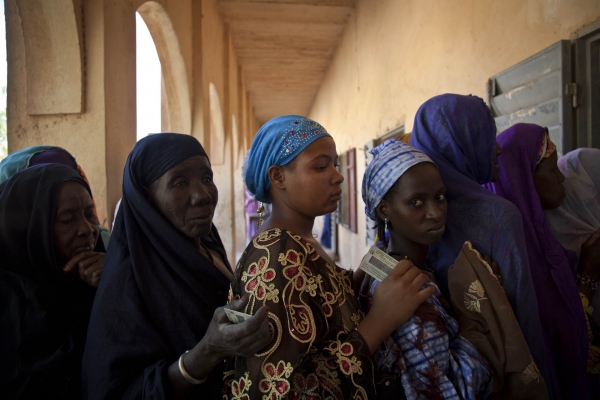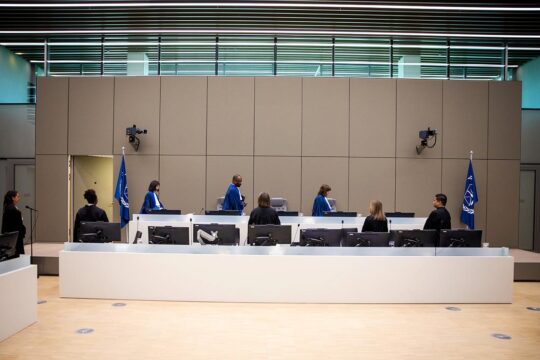Mali has just adopted a law introducing a 30% quota for women in public posts and electoral bodies. Women in Mali say they are determined to use this new law to play fully their role in the peace process. The country has been in crisis since 2012, and women are the first victims. JusticeInfo talked to several women engaged in the peace and reconciliation process.
Former MP Dicko Fatoumata Dicko says women not only have “specific rights and needs”, but also specific “contributions” to make to the process of pacifying and rebuilding the country. “Given the effects of the conflict, women are not content just trying to survive,” she told JusticeInfo. “On the contrary, they are organizing themselves in their communities, their families, their villages, to keep health services, education and solidarity networks going, often across all ethnic and cultural divides.”
Ms Dicko, a financial auditor now working for the Energie du Mali (EDM-SA) company, says that in times of crisis it is women’s role to keep the community together and preserve social order. “Their action has sown important seeds for the peace and reconstruction of our society,” she adds.
Women are, for example, helping victims to talk about the violence they have suffered, so as to move towards forgiveness and reconciliation. “Because,” she says, “the justice system cannot try all the crimes, and women are quick to denounce injustice.”
She urges the government and civil society organizations to listen more to women. “Women can propose strategies and concrete solutions to resolve conflicts, especially conflicts between communities,” she told JusticeInfo, and so women should have seats “on all the bodies charged with implementing the peace and reconciliation agreement that came out of the Algiers talks”.
The role of Malian culture and tradition
The president of the Women’s Network for Peace and Security within the ECOWAS region (REPESCO), lawyer Diakité Saran Kéita, stresses it is women who have paid the heaviest price in the crisis, including rape, abductions, torture and abuses of all kinds often inflicted on women and girls. “There is no doubt that we women are the most traumatized by the fighting and the miseries it has brought, with our children unable to go to school, husbands exiled and/or killed,” she says. “This tragedy has made us more determined than ever to act to help bring peace and reconciliation to people’s hearts.” Her association has been working for a long time to sensitize women so they can forgive, she told JusticeInfo, but does not discourage them from going to the Truth, Justice and Reconciliation Commission or the courts to obtain reparations for the wrongs they have suffered.
This lawyer thinks it is vital that women use their role of educator to promote unity. “Through debate and exchange and media campaigns, they need to mobilize women in the towns and rural areas to fan the flame of peace lighted by the signing of the Algiers peace accords,” she says.
The president of the Coordination of Women’s Organizations (CAFO), Ms Traoré Oumou Touré, stresses the role of Malian tradition and culture in helping women become more involved in the process of social reconciliation.
As Ms Diallo Salimata Ouattara, principal private secretary to the Minister of Decentralization and State Reform, reminds us, Mali is a country where “nearly 90% of the population are Muslim and families are polygamous”. In such a society, she believes women can help bring families and communities back together.
Overcoming divisions
One of the women in the forefront of Mali’s reconciliation process is Nina Oualett Intallou, first Deputy President of the Truth, Justice and Reconciliation Commission. Like others, she stresses the suffering of women in the conflict, but also urges them to show solidarity across all ethnic and other divisions. “Women must join hands to influence the return to living together and accepting others,” she says.
Intallou, a former political leader in the National Movement for the Liberation of Azawad (MNLA), says the majority of refugees are women. Mali’s women must therefore help their traumatized and exiled sisters to reintegrate into society. “I urge human rights organizations and NGOs to help us to help reconciliation in Mali and especially the manifestation of truth and justice, so there can be lasting forgiveness,” she says. “That is the price to pay for lasting reconciliation.”






